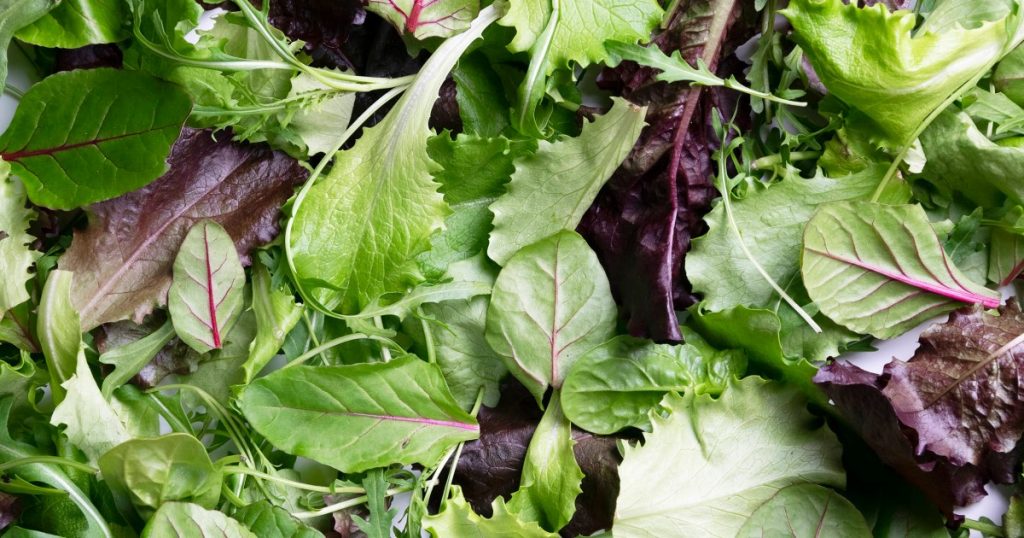Leafy greens are celebrated for being a health food due to their nutrient-packed nature, delicious taste, and importance in a healthy diet. This superfood group includes a variety of leaves in different colors, shapes, and sizes, such as butter lettuce, arugula, romaine, and spinach. Leafy greens are loaded with essential vitamins, minerals, and antioxidants that offer numerous health benefits, including supporting the immune system, heart and brain health, maintaining strong bones, fighting inflammation, and protecting vision. They are also low in calories, carbohydrates, and fat, while providing some protein and fiber.
According to dietitians, it is important to consume leafy greens several times a week, as they are a vital part of a balanced diet. Adults should be consuming two to three cups of vegetables per day, with one serving of raw, leafy salad greens being equivalent to two cups. Darker greens are generally more nutritious, but it is recommended to have a variety of leafy greens in your diet to ensure a wide range of nutrients. Some leafy greens like mustard greens and collard greens are better tolerated when cooked, while others like spinach, kale, arugula, watercress, and romaine are excellent choices for salads due to their high nutritional value.
Spinach is a versatile and highly nutritious leafy green, providing vitamins A, C, and K, potassium, folate, and magnesium. Kale, another favorite among dietitians, is rich in fiber, protein, vitamin C, calcium, and antioxidants, making it an excellent superfood to include in salads. Arugula is a peppery green that is low in calories and high in vitamin C, vitamin A, folate, and magnesium. Watercress, while often overlooked, is a nutritional powerhouse rich in vitamins A, C, and K, as well as phytonutrients that may benefit health conditions such as diabetes, cardiovascular disease, and cancer. Romaine lettuce, a lighter colored and crisp variety of lettuce, is packed with vitamins A and K, calcium, potassium, iron, and magnesium.
While all leafy greens are inherently healthy, some are more nutrient-dense than others, with iceberg lettuce being on the lower end of the spectrum. It is important to mix up your salad greens and add nutrient-dense options whenever possible. Leafy greens are generally safe to consume daily but may interfere with certain medications, such as anticoagulants, due to their high vitamin K content. Additionally, leafy greens may contain pesticides and pose a risk of foodborne illness if not washed properly before consumption. Choosing whole, nutritious toppings and healthy salad dressings, such as vinaigrettes made with olive oil, yogurt-based dressings, avocado-based dressings, and tahini dressings, can further enhance the nutritional value of salads.


